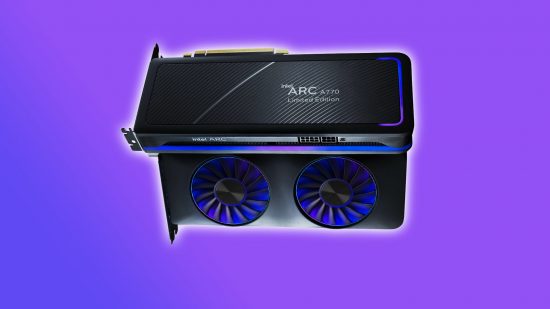Intel Arc arrived last month, and the graphics card range ultimately failed to cut through the Nvidia RTX 4000 noise. While the Alchemist GPU lineup offers decent performance for the price, driver issues initially caused a bit of a ruckus. Thanks to post-launch updates, A770 performance appears to be on the up, but the card’s software is still finicky.
The consensus across the Intel Arc A7 GPU reviews board is that the GPU range offers decent performance per dollar, but software is an undeniable detriment. For the most part, the card trades blows with the RTX 3060, with driver bugs affecting performance more so in DirectX 11 games.
Now that Intel Arc Alchemist has had a month to find its feet, PCWorld has decided to jump back into the benchmark waters. A new video puts the A770 back through its paces, and the card can now seemingly boost fps further than before DX11 releases. Specifically, the GPU churns out 108fps in Total War: Troy, compared to 91fps at launch. Bumping resolution up from 1080p to 1440p narrows the gap, with frame rates increasing from 81 to 88fps.

Both Horizon: Zero Dawn and Cyberpunk 2077 also play a bit nicer with the A770, with respective 10 and 5% frame rate improvements at 1080p. Dialling things up to 1440p provides mixed results, with marginal improvements to CP2077 frame rates and no change in Horizon compared to launch benchmarks.
The latest Intel Arc driver update clearly improves the GPU’s performance situation, but it weirdly hampers frame rates in Watch Dogs: Legion. PC World’s figures reveal a marginal 4fps dip, which perhaps suggests persistent driver shenanigans under the hood.
If Intel can continue to iron out its Arc drivers, the A770 could fair better in the best graphics card ring. Sure, if Nvidia keeps producing RTX 3060 and slashes the price, it’d perhaps harm the company’s ‘price per perf’ campaign. However, if the entry-level contender can keep its head above the water, it’ll no doubt improve the blue team’s chances of becoming a true third horse in the GPU race.
